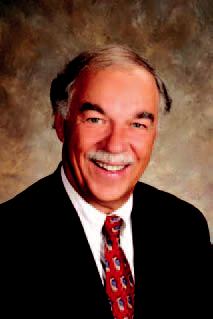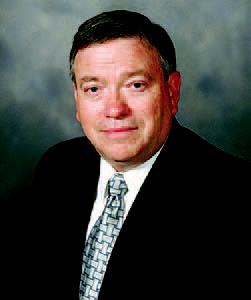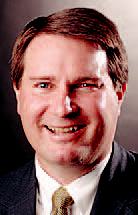CBT Q&A: The pulse of local business: Uncertainty hindering business development in Columbia
The CBT asked four business consultants and two certified public accountants what they’re hearing on the street and from their clients: Cathy Atkins, president of Savant Business Development Systems; Jim Gann, director of technology business at MU’s University Center for Innovation and Entrepreneurship; Gene Gerke and Joe Weston of Gerke & Associates; Jim Marberry of Marberry & Company, PC, CPAs; and Troy Norton, audit partner with Williams-Keepers LLC.
When you talk with business owners and managers in mid-Missouri and elsewhere, what are they expressing as their major concerns this year? Are concerns this year different from past years?

Before, there was a sales department. Now, there’s a sales culture. Everyone sells, from the office manager to the technician. Customer service is about protecting current revenue and minimizing client turnover. It might also be about teaching frontline employees to up-sell and cross-sell existing clients.
Many business owners tell me they’ve realigned their focus points and gone back to basics. Across the board, the emphasis is on proficiency at the foundation of the sales process.
The other key area is recruiting and hiring quality salespeople. The marketplace has vetted out many of the salespeople who didn’t have the skill, ambition or intestinal fortitude to succeed. Companies realize the value of having a hiring process. A system minimizes the risk of making a bad hire and then keeping them around too long.

However, the people we are seeing in our office seem to have changed. The first-time entrepreneurs who are seeking to capture a perceived market opportunity associated with a positive economic situation have significantly declined. People who have chosen to become entrepreneurs as a result of a layoff or other life change seem to be on the rise.
Established businesses are hunkered down to survive the current situation. We have counseled some businesses that misjudged the downturn and have had to restructure, downsize or do both.
For example, if a business was in a market serving the construction industry or the hospitality industry and had expanded capacity two or three years ago to serve the demand, they have had difficulty supporting the overhead of expansion with a reduced amount of sales in this economic atmosphere.


Some of the uncertainty emanates from new laws and regulations such as health care and financial reform. (How much will health insurance premiums increase next year?) And business leaders are waiting for evidence of solid improvement in demand.
That being said, the mood is definitely better than a year ago. For example, we recently did due diligence on an acquisition that actually happened for sound business reasons, not financial distress.

Unless Congress acts before the end of this year, many taxpayers will experience substantial increases in federal income taxes, including an alternative minimum tax increase retroactive to Jan. 1, 2010. Some clients believe that Congress will fix the looming tax increases; others believe there is no way Congress can act before or after the elections in November.

Many of the businesses in mid-Missouri appear to have weathered the recession better than in some areas of the country, but concerns over government budgetary issues create significant uncertainty locally. Concerns have not changed much from 2009, though there is probably less fear about the markets completely crashing than there was 12 to 18 months ago.
Are businesses finding that credit remains relatively scarce? Are businesses dealing with their financing needs in different ways than they have in the past?
Atkins: They’re responding by managing their cash flow more efficiently than in the past. Many are doing more with less. That can be demoralizing to some employees who are being asked to take on additional workload with little or no increase in compensation.
It’s purely a short-term fix and should never be considered long-term. Businesses are closely considering their market strategy. Some are more open-minded about who their potential customers are. They’re finding ways to expand the product/service mix to entice a wider portfolio of clients. At the end of the day, financial stress is either an expense problem or a revenue problem. Many businesses have cut corners in every place they can. What’s left is to grow sales.
Additionally, banks are expected to be more of a partnering solution for businesses rather than a ginormous ATM machine. That relationship will help everyone be smarter moving forward.
Gann: My colleagues and I actively interact with the local banking community. Throughout the recent downturn, we observed that good bankable deals were always — and still are — getting done. Just last week, I had a conversation with a bank president in which he indicated the bank needed to make more good loans.
I believe what changed has to do with what a bank will call “good.” It’s no secret that the banking crisis has brought more regulation to the banking community, so I do think the local banks are even more mindful of their fiduciary responsibility to their depositors. I think the net result to the local small-business community is that some marginal deals that might have been done two or three years ago aren’t getting done now.
That said, we are extremely fortunate to be located where small and mid-sized community banks primarily serve us. The vast majorities of these institutions understand the community, make decisions locally and were conservative in their approach before the downturn.
From time to time, we’re asked about how to access the sea of recovery money that is supposedly available to small businesses. The truth is that much of the recovery money is reaching small business through existing programs. For example, the SBA loan guarantee program has increased its guarantee rate to the bank and lowered the fees to the final customer. The thought is that the program will expand and become more of an inducement to banks to make small-business loans.
Gerke/Watson: Credit is still an issue. Lenders are more cautious and require better numbers and want more than just a pretty balance sheet. And, as stated above, many businesses are reluctant to take on more debt until they see solid growth opportunities.
But again, it is better than a year ago when we learned more than we wanted to know about the impact of credit swaps, mark-to-market accounting and goodwill impairment on bank covenant ratios.
Marberry: Businesses that are able to demonstrate an ability to repay the loan in a reasonable time period are finding credit available. Some very credit-worthy clients are simply not willing to take on additional debt in an uncertain world. Many businesses are delaying expansion and capital purchases until there are more positive economic signals.
With the recent announcement of corporate expansion in the Columbia area, a few clients are now making plans that will eventually require additional capital. It’s too early in the expansion process to know what impact that will bring. Twelve to 15 months from now, we will have a much better understanding of this aspect. Although the lending institutions are the first choice for borrowed funds, other alternatives are in the private investor market and, in a few instances, intercompany loans.
Norton: Credit still seems to be tight for many businesses. Uncertainties in the financial institution industry, concerns regarding the capital positions of banks and the risk that all losses might not be known yet seem to have most banks in a very conservative mode and only providing credit to the very best of business opportunities.
Business owners are looking for other sources of capital, either from grants, government incentives or raising private equity. However, raising investment capital is proving very difficult — most investment firms are still in a wait-and-see mode.
Trend watchers have said businesses this year would be tapping the growing senior market more aggressively and taking advantage of consumer support for green products and services and locally grown and made products. Were they right? What are you seeing as emerging business trends?
Gann: On nearly a daily basis, we encounter entrepreneurs who are also interested in these trends. The difficulty is making the connection between the trend and the company’s ability to capitalize on it. Green and local are relative terms, and a consumer is forced to make relative judgments when buying green or local. How does a relatively sour peach grown in Ashland compare with a sweeter peach grown in Cape Girardeau or Peru? Consumers might answer that question in different ways. Likewise, a consumer might recognize the importance of buying an energy-efficient appliance but at what premium over a lesser efficient model? Again, consumers might make this judgment differently. These variables make it exceedingly difficult to build a business model around being green or local alone. The wise business is simply augmenting its current offerings to include green and local choices.
One area of green that has a measurable benefit to the consumer is in the arena of energy services. Home and industrial energy audits, heating and cooling upgrades, etc. have a very measurable benefit to the consumer. This benefit becomes a selling proposition to the consumer to make a sale. With the improving technologies in energy management, insulation and the like, there are certainly market opportunities evolving.
Gerke: Good business managers have always put effort into controlling costs, including energy usage. Today some of that effort is wrapped with green packaging. The green moniker does make it easier to sell through the organization and creates PR value in addition to cost savings. Plus the green movement has brought more creative solutions to the market.
Marberry: The trend watchers were correct to some extent. A few years ago we predicted the baby boomer generation would have substantial wealth with which to retire. With the equity market declines of the past 10 years, some of those predictions have not come to fruition.
I believe the average disposable income in the senior market is not as high as was common in 1995. Green products and services, including local production, are logically the new frontier. We experienced similar green marketing from 1970 to 1980 when gasoline prices climbed above $1. Somewhere we lost our focus; maybe we are regaining some of that. Throughout our lifetime, baby boomers have created markets by our needs (I am a boomer). When we started to have children, suddenly Pampers and Similac showed up in the grocery carts. Trend watchers only need to predict the needs of the boomers. I’m betting they need tax preparation and planning services.
Norton: I don’t know that we’ve seen any focused efforts on the senior market, likely because of the lingering concerns regarding the economy. There does appear to be a great deal of public and private support for green products and services, but financial support does not seem to be as strong as verbal support. Everyone wants governments, businesses and individuals to be more environmentally conscious, but the general sentiment seems to be, “I don’t want to pay for it.” The biofuels industry is a good example: Almost everyone agrees having renewable fuels to replace fossil fuels is a good idea, but most people are unwilling to pay more for renewable fuels, and support for government incentives to develop the technologies is lacking in the current economy.
Unemployment remains relatively high in mid-Missouri, and it seems logical that there would be more qualified applicants in the market. But businesses operators have said it’s been difficult to recruit and hire talented salespeople, perhaps because of concerns about economic conditions. What have you heard about changes in the dynamics of hiring?
Atkins: In sales, adverse market conditions are separating the wheat from the chaff. Mediocre salespeople who rode on the coattails of a company brand and a whirlwind economy have long gone. Selling today requires a consistent, systematic and disciplined approach. The primary concern right now is growing revenue, and there are only two ways to do that: (1) prospecting for brand new clients and (2) increasing wallet share with existing clients.
There are plenty of good jobs available for smart, assertive and dedicated salespeople who want to earn a healthy living. If the economy has you scared, you’re probably not a salesperson.
If you give up and accept a “think-it-over” from a prospective employer and then sit back and wonder why they’re not calling you back for a second interview, you’re not a sales candidate.
Gann: My first thought is that good, productive salespeople are exceedingly difficult to find in any economy. Other than transactional salespeople, it is difficult for a business to shoulder the burden of a salesperson during the extended period of time it takes to build and maintain consultative selling relationships. My personal experience is that it takes a minimum of one year for a salesperson to build the necessary trusting relationships to be productive. During this time, there are periods of self-doubt as to whether you hired the right person. It is easy for the business or the salesperson to get frustrated during this period, and if a change is made, the clock on the relationship building with a customer resets.
I have found the general labor market to be very stratified. Recently, an organization I work with had an opening for a professional masters-level or above position. They received 12 applications. The same organization had an opening for an administrative assistant that garnered 130 applications.
Gerke: On the surface is does seem strange that firms struggle to hire qualified sales people. But sales people see the same economic uncertainties and might be reluctant to take new jobs or join a different company, especially if a significant part of the compensation is based on sales generated, e.g. commissions.
Marberry: Congress recently passed legislation that provides financial stimulus to those employers hiring staff who have been without work 60 days or longer. I believe most hiring decisions are based primarily on need and not on an economic incentive. The incentive is welcome and is viewed as a nice gift, but the staffing decision is based upon need, not the 7 to 8% temporary discount provided by Congress. The uncertainty in the business climate, income taxes, estate taxes, health care and other pending or threatened regulations do nothing to reassure employers.
Norton: We are beginning to see an increase in hiring by for-profit businesses in mid-Missouri. However, the area’s large government presence keeps unemployment numbers high. Economic concerns are keeping new business development from occurring, so there is little overall job growth. However, recent announcements of new businesses coming to mid-Missouri are certainly welcome and encouraging. Hopefully we can retain our relatively low cost of living and high quality of life amidst this economic uncertainty and continue to attract new employers to the area.
If you have any interesting anecdotes that illustrate recent business trends, please share one or a few — no need to identify businesses, of course.
Gann: I really see a rising tide of entrepreneurship within the community. This can be attributed to efforts on multiple fronts: outreach by our office, the establishment of the physical incubator of Missouri Innovation Center, economic gardening employed by REDI, meet-ups by Brandt Bukowski, activity by Reynolds Journalism Institute. The list goes on and on. Building a supportive network of entrepreneurially minded individuals will be just as essential to our community as market opportunities, financing and qualified CEOs. If we continue to create the right environment, I’m convinced great things will happen.
Gerke: This is an anecdote about unintended consequences. A lender foreclosed on a business in a niche industry in which the bank had other customers. Instead of allowing the business to liquidate inventory over a period of time, the bank forced an auction. A few industry firms were at the auction to purchase the inventory. The prices were so low that the bank, realizing the impact this reduced-price inventory would have on liquidation revenue and industry pricing, suddenly stopped the auction with two-thirds of the inventory unsold.
Marberry: We recently added a staff member to our firm: a dynamic young man, a recent university graduate with glowing recommendations. We were able to attract him to our firm in Columbia after his plans to join a large national firm were thwarted by the large firm’s hiring freeze in its Kansas City office. Without this unexpected opportunity, we would have waited at least a few months before this staffing decision. This individual did not qualify for the economic stimulus; he worked part time throughout his college years and was employed within the 60-day window prior to joining us. That potential financial incentive had nothing to do with our hiring decision.
“One man’s loss is another man’s opportunity.” Within the past 24 months, the Dodge franchise was transferred to the Chrysler franchisee here in Columbia. The Saturn facility became available when Saturn Motors announced they would no longer produce automobiles. The Chrysler franchisee was then able to purchase the complete Saturn facility and move the Chrysler component to that address. That move allowed the creation of a new separate entity and expansion of the Subaru Dealership. Recently it was announced that University Subaru is the largest Subaru store in Missouri and Kansas.


